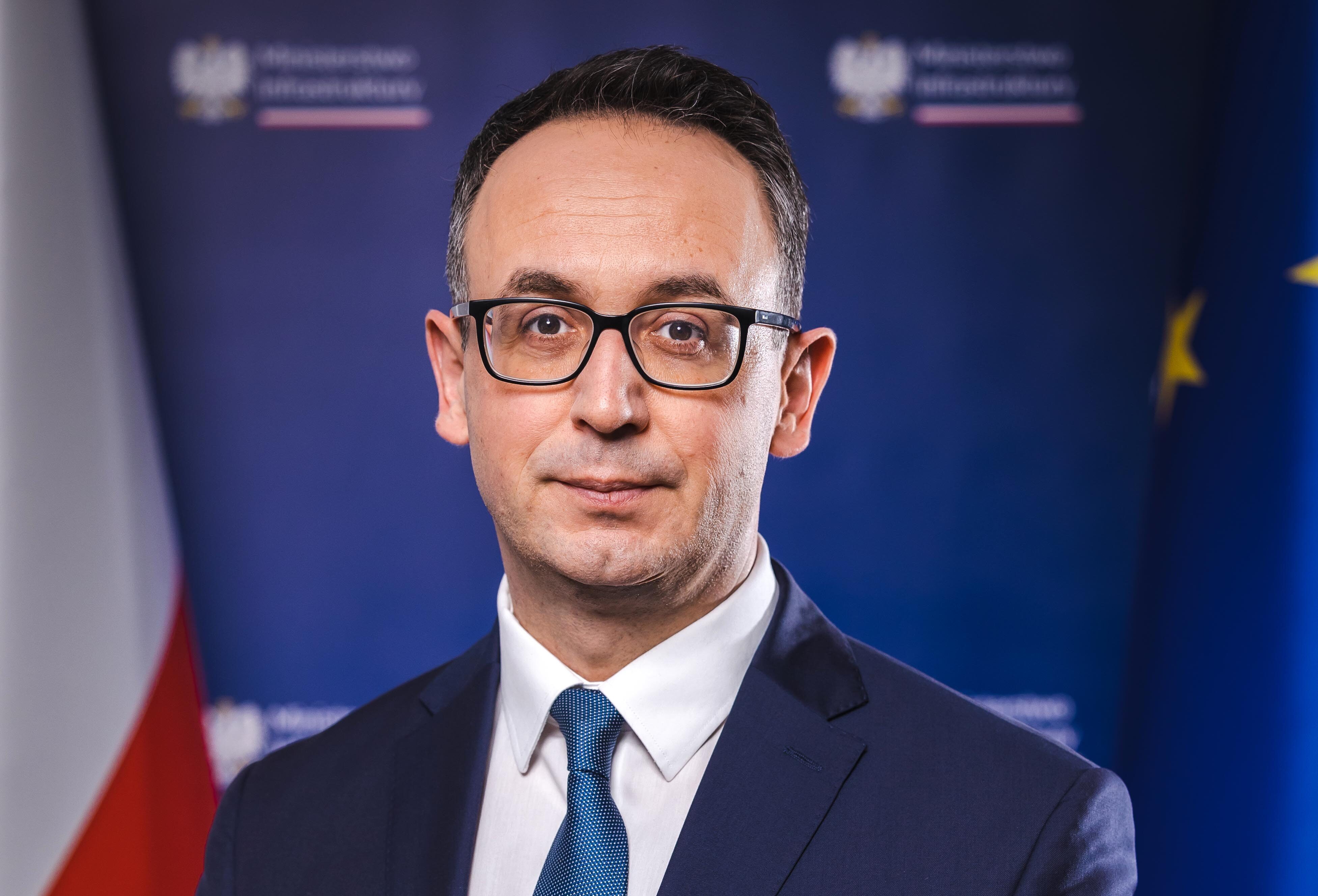
Poland is modernizing its infrastructure to enhance connectivity and economic growth. Dariusz Klimczak, minister of infrastructure, discusses major investments in transport, rail, and maritime projects, as well as efforts to strengthen cross-border partnerships and attract foreign investment.
Q: Since your appointment as Minister in December 2023, what have been your key priorities and strategic decisions in shaping Poland’s infrastructure policy?
The very first challenge I faced was addressing the protests by truckers blocking the Polish-Ukrainian border for almost an entire year. The EU had suspended the permit system for road transport operations, which had existed before the full-scale Russian invasion of Ukraine in February 2022, in order to support Ukraine’s economy. However, this move directly impacted Polish hauliers. We successfully resolved the issue and managed to unblock the border crossings between Poland, Ukraine, and the European Union. This was not only important in the bilateral context but also crucial for Ukraine’s relationship with the EU.
Another key priority has been coordinating Poland’s transportation policy. When I took office, responsibility for railway transportation was spread across several ministries. Today, I have direct authority over road transportation, railway transportation, the maritime economy, and aviation. One of the most important projects under my oversight is the Centralny Port Komunikacyjny (CPK, Central Transport Hub)—a strategic investment that will create a modern, integrated national transportation system, including a new state-of-the-art airport between Warsaw and Łódź and a high-speed rail network.
A third area of focus is advancing infrastructure development across all sectors, including new roads, railways, and maritime facilities. We are also working on stabilizing the construction market in Poland and have introduced new proposals, such as a joint transportation ticket system for public transport, inspired by the German and French models. Another initiative is the proposed “friendship ticket” for rail travel between Poland and Germany, aimed at benefiting young travelers.
Q: With the extended EU funding scheme until 2025 and strong Poland-Germany investment ties, what infrastructure projects would be of interest to German investors?
It is essential for us to build strong cross-border partnerships between Poland and Germany. One of my key objectives is to enhance cooperation in road, railway, and maritime infrastructure. During my discussions with my German counterpart, I emphasized the importance of strengthening existing connections such as Poznań to Berlin, while also establishing new railway links, particularly in regions that currently lack them. Given the new geopolitical realities since the outbreak of the war in Ukraine, transportation is not just about moving people and goods—it also plays a critical role in European security and military logistics.
We also seek support for major Polish maritime projects, including the construction of a container terminal in Świnoujście and the modernization of navigation on the Oder River. These initiatives will improve trade flows and connectivity between Poland and Germany.
Perhaps the most strategic infrastructure challenge is preparing for the postwar reconstruction of Ukraine. Poland will play a central role in this process, requiring the development of transportation hubs and intermodal centers to facilitate Ukraine’s reintegration into the European economy.
Q: How is Poland creating a favorable environment for foreign investment in infrastructure?
Although the Ministry of Infrastructure is not directly responsible for economic development, we work closely with key ministries to ensure Poland remains an attractive investment destination. We frequently coordinate with the Minister of Economy and the Minister of Development to simplify regulations and create favorable investment conditions. We are fully aware that Poland is an excellent place for investments, offering strong economic potential. However, we expect this cooperation to be based on reciprocity—just as we provide favorable conditions for foreign investors, we also expect similar treatment for Polish companies abroad. Our ministry acts as a facilitator, ensuring a streamlined investment process across different sectors. For example, we engage in direct dialogue with key European leaders, including Germany’s Deputy Chancellor Robert Habeck, to strengthen infrastructure and investment ties.
Q: Can you elaborate on the Vistula Spit canal project and other major maritime developments?
For some time, Poland has been working on the construction of a fourth major seaport. This began with the Vistula Spit canal, an initiative launched to create an independent shipping route, bypassing Russian-controlled waters. We have added further value to this project to ensure economic efficiency, and we are now close to completion.
The port of Elbląg, which will be accessible through the Vistula Spit canal, is another key part of this initiative. To make the port operational, we are deepening the waterway and working closely with local authorities and businesses. This project is not just symbolic—it is a critical investment for Poland’s economic future.
Our existing seaports in Gdańsk, Gdynia, and Szczecin-Świnoujście have already proven their economic and operational success, and we believe Elbląg will further strengthen our maritime sector.
Q: What role does Poland’s infrastructure play in the country’s broader economic and geopolitical strategy?
President Andrzej Duda is highly engaged in Poland’s infrastructure agenda. We recently held a Cabinet Council meeting focused on infrastructure, where we discussed Poland’s growing role in European transportation policy. Large-scale projects like CPK (Central Transport Hub), new high-speed rail connections, and expanded maritime investments are vital for Poland’s future. However, our strategy is not just about grand infrastructure plans—we are also prioritizing regional investments that improve daily life for citizens. This includes parking infrastructure, commuter services, and city connectivity projects, such as the Łódź cross-city tunnel, which will reunite historically divided regions.
At the European level, I have been actively engaging with the European Commission to ensure continued financial support for Poland’s infrastructure initiatives. Our cooperation with European partners—including Germany and the Czech Republic—remains critical.
Poland is modernizing its infrastructure to enhance connectivity and economic growth. Dariusz Klimczak, Minister of Infrastructure, discusses major investments in transport, rail, and maritime projects, as well as efforts to strengthen cross-border partnerships and attract foreign investment.
